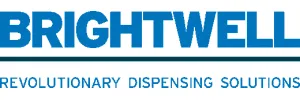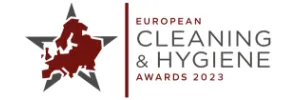News & Insights
Read the latest news from us and our clients across the globe

Posted on 23 August 2020 by Ceris Burns
Say no to sticky tables
As Brits continue to hit bars and pubs across the country, punters are being urged to look out for the telltale signs that they haven’t been cleaned to COVID-19 standards.
A leading cleaning solutions expert has warned that sticky bars, tables and floors are a giveaway sign that an establishment’s cleaning practices are not up to scratch in the post-lockdown world.
James White, Managing Director at Rawlins, is urging people to be extra vigilant when it comes to surface hygiene in any hospitality setting, to protect their health and prevent a second peak of the virus.
Mr. White says: “If you go into a bar or restaurant and sit down at a sticky table, it is proof that it hasn’t been cleaned properly. You should complain immediately to management and ask them to re-clean the area to ensure all traces of bacteria have been removed.”
With research showing that COVID-19 can survive on surfaces for days, the warning is a stark reminder that traditional cleaning practices aren’t enough to safeguard staff and customers, despite the virus being in retreat.
He adds: “We all know that the virus can be spread by touching infected surfaces so it really is vital that cleaning measures are robust enough to eliminate any risk and stand up to coronavirus.
“I appreciate that establishments are working hard to ensure their premises are COVID-secure, and many have increased their cleaning efforts in recent weeks, but it is no longer enough to rely on disinfectants and mops.
“What many people do not realise is that, like the losing battle of antibiotics against superbugs, disinfectants become increasingly ineffective over time. Although the solution may kill most bacteria, it doesn’t remove them, leaving dead microbes, along with any surviving germs, spread across the surface. And these microbes, dead or alive, serve as a food source for the next wave of bugs.”
Mr. White states that the only way to ensure a surface is free from infection is by adopting a robust cleaning process that extracts dirt and protects the area from future germs.
Dubbed the ‘remove, improve and protect’ method, the stages include:
Remove
Tables, surfaces and floors in bars and restaurants can quickly become unhygienic, with high footfall, spills, and drips creating dirty, sticky surfaces. Traditional mopping and wiping won’t remove the bacteria, only move it around. The only way to eliminate dirt on hard surfaces is by adding water and the correct chemistry and removing the used solution using our high flow fluid extraction process.
Improve
All cleaning should be process-driven and continuously improve cleanliness levels each time. The effectiveness of the process can be measured by taking adenosine triphosphate (ATP) measurements before and after cleaning, to ensure that surfaces are not just clean, but free of germs.
Protect
The final step of the process should always be to protect the surfaces with a solution like the Zoono Z-71 Microbe Shield, which is a cost-effective, residual polymer-based antimicrobial protection.
The solution provides 30-days active protection for any treated surface, significantly reducing the spread of harmful bacteria and viruses, giving a unique, proven, long-lasting barrier protection.
Rawlins recommends that main touch points, such as bars, tables, and door handles, are treated every seven days, with the wider area fogged or sprayed every 21 days for the very best hygiene. Routine cleaning can continue between applications, without disrupting the Zoono molecule or its antimicrobial activity.
For further information on Rawlins’ equipment and processes visit https://www.rawlins.co.uk/remove-improve-protect-covid
Experts in Public Relations Services & Communications Management
Our ServicesGenuine industry specialists in cleaning and hygiene, environmental and recycling, and facilities management
Our Sectors












